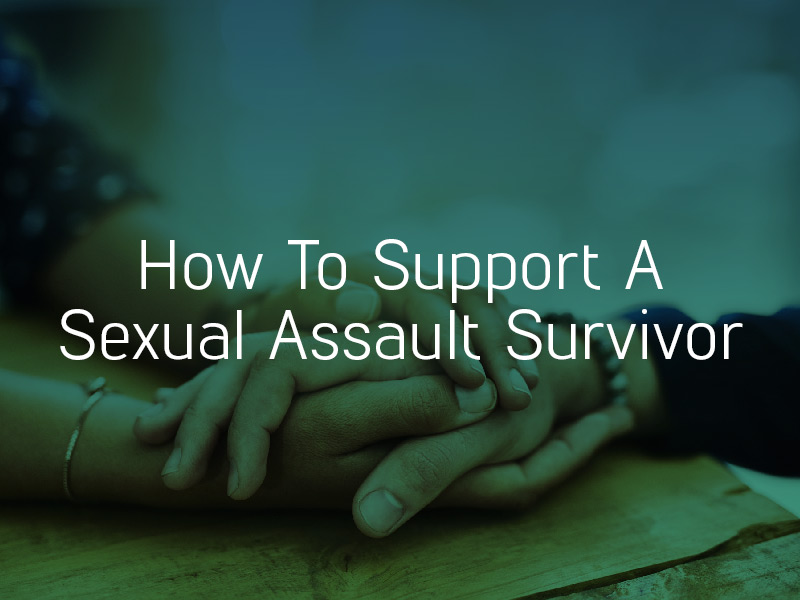The holidays are approaching, and many families are preparing for yearly celebrations and gatherings. While the holidays may be enjoyable for some people, others can have a much different outlook on this time of year. For some survivors of sexual assault, the holiday season can be very overwhelming or difficult, especially if the holiday season acts as a reminder of the incident. If you have a loved one who is a survivor, there are a few ways you can support him or her through this time.
Tip #1: Listen to the Survivor’s Story
One of the most important steps you can take in supporting a survivor is to listen to his or her story following the assault. If you are someone he or she wants to share with, that means that the survivor trusts you a great deal – and it is important to honor that trust as much as possible.
When you do listen to the survivor’s story, practice active listening. Do not interrupt or let your mind wander during the conversation. Allow the survivor to speak for as long as he or she wants to, and contribute to the conversation when he or she wants feedback. Remind him or her that you believe his or her story, that the assault was not his or her fault, and that you are there to speak to him or her whenever he or she needs it.
Tip #2: Do Not Pressure the Survivor to Share or Report
As important as sharing experiences is, it is equally important to allow the survivor to share at his or her own pace. Do not pry the survivor for details he or she does not want to share and refrain from asking invasive questions. Instead, remind the survivor that you are there for him or her and you are available to listen whenever he or she wants to talk.
In addition, you should also refrain from judging the survivor for his or her actions post-assault. If he or she decided not to report the incident to the police, respect his or her decision. If he or she is undergoing a court case against the perpetrator, respect that decision. Do not pass judgment on the survivor or blame him or her for the assault.
Tip #3: Set Up a Safe and Quiet Space
If you are hosting the survivor for the holidays, try to create a place where he or she can escape to in certain situations. The holidays can be overwhelming for some survivors, and certain words or actions could trigger an emotional reaction. In these instances, it is important for the survivor to have a place where he or she can decompress, meditate, or take other actions to protect his or her mental health.
Ask the survivor what he or she would prefer in this space: does he or she anticipate needing this space? Would he or she like it to be indoors or outdoors? Would the survivor like certain items to be there, such as reading material, comfortable pillows or blankets, candles, a yoga mat? Taking the time to make a decompression space could make a difference in the survivor’s holiday experience.
Tip #4: Do Not Contact the Perpetrator
According to the Rape, Abuse, and Incest National Network, the majority of survivors of sexual assault knew their perpetrators at the time of the assault. For some survivors, this means that their perpetrator could be a family member, family friend, or even a neighbor or acquaintance that lives in the area where you are having your holiday celebration.
Do not contact the perpetrator or invite him or her to any events or gatherings. Make a plan to keep the survivor away from the perpetrator in situations where they might see each other. If other people try to bring the perpetrator to a gathering, try to remove the perpetrator swiftly and without commotion.
If you are a survivor of sexual assault or have a member of your family who is struggling with the aftermath of sexual violence, these tips can help you navigate the holidays in a supportive environment. Creating a warm and nonjudgmental environment is crucial to if you are looking to seek justice against the perpetrator responsible for the assault, contact a sexual assault lawyer as soon as possible.

